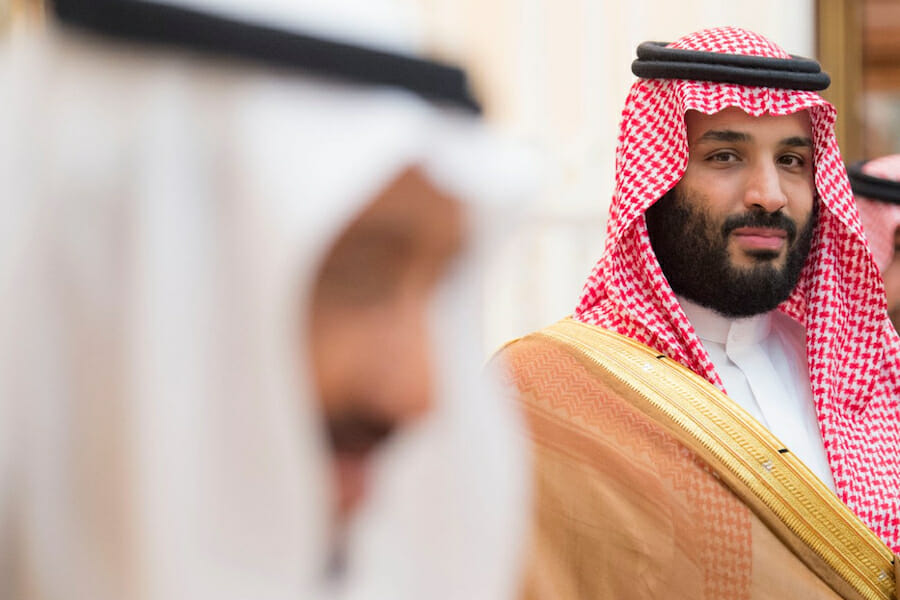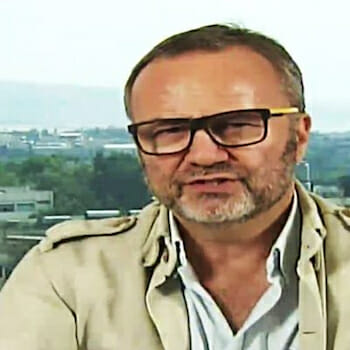
How the Saudi-Canada Row has Backfired on MbS
Barely a week passes without Saudi Arabia making headlines with its latest capricious policy gaffes, both around the world and in the region. But what we have witnessed with the latest debacle with Canada might delude Riyadh into thinking that at least this bold move might set a new watershed in the Kingdom’s dealings with western powers – particularly those it buys arms from, while giving the ruling elite a boost back home as young people who are wondering when, if ever, this much heralded modernisation program will actually begin.
Saudi Arabia, we shouldn’t forget, doesn’t only have an international image problem but also a domestic one as young people there desperately want their country to modernise beyond merely cinemas and public performances.
And yet it won’t.
On the international circuit, opinion writers may well harp on about about a new milestone in arms buying has been achieved, in reality it is something much more pernicious. A message from the Saudis: If we buy our arms from you, we also buy your silence.
And when you look for a moment at the rank hypocrisy of the Canadian government, it’s easy to see why the Saudis reacted so quickly and with such confidence. The Saudis struck a deal in 2014 with Ottawa for 900 armoured vehicles, with some claiming that these attack vehicles were originally billed as ‘troop carriers.’ These vehicles are no doubt destined for Yemen and represent an $11 billion deal. Yet the small print of the contract is interesting in that it contains a gagging order for the seller preventing them from discussing the terms of the deal in any way.
In light of the recent opprobrium from Canada over detained female activists one is left wondering whether the Saudis had believed they had stifled, wholesale, all criticism of its governance.
Indeed, if we are to look at the US and the UK – both much larger traders in arms – it is harder to find any comment whatsoever on the Kingdom’s human rights record, or for that matter its conduct in Yemen. This is nothing new but considered good business which led to the former UK Minister for International Development, Alan Duncan, telling the alternative journalist Owen Jones on camera that Saudi Arabia was not a dictatorship; or even more recently, London eagerly lobbying the Sisi regime of Egypt to ramp up its arms purchases (which of course include torture tools as the icing on the cake).
What the Canadian row has revealed however is the mindset of the Saudis which is that spreading their arms sales spending plan over a wider field is really all about politics (its interest in theRussia’s S-400 missile system is another example) and muffling western media. Indeed, Saudis could have bought those ‘trucks’ from the US.
The Canada ruse however, has another side to it, which was to give a much needed shot in the arm to the credibility of Mohamed bin Salman (MbS) who domestically has to contend with a disenchanted population of young people who are confused by his policies and initiatives. If the international community is struggling to understand how MbS will attract vital foreign investment into the country – while also arresting anyone who comments on his erratic and illogical policies – the Saudis themselves must be truly baffled.
Just recently, the embarrassment of Riyadh pulling out of its own IPO of the state owned oil company, Saudi Aramco – a plan aimed at raising much needed cash for the MbS vision of a reformed Saudi Arabia, which included a new ‘super city’ to compete with Dubai – has hit home just how desperate the ruling elite is to save a failing economy. The political implications of the cancelled floatation will be significant to many Saudis who look to MbS as a reformer.
Of course some western pundits have argued that the young Crown Prince is not a reformer at all, but an ultra conservative, masquerading as one.
The Canada spat, it was no doubt hoped, would both galvanise this idea as well as give young Saudis some newly acquired pride in their identity, as their leader made a stand against the western world’s interference. Sadly, for MbS, like almost everything he and his clan do, the move has backfired.
The long list of countries which originally supported the move, on paper at least, has been revealed as phoney. Even the UAE who came out strongly from day one have not stopped trading with Canada and no amount of fake news, armies of bots and lobby groups in DC writing journalists’ copy will block what many Saudis are waking up to this week. The Canada row has made Saudi Arabia look even more weak and vulnerable and has exposed MbS and to an extent his father, as rulers who not only seek the worst western PR firms’ counsel, but that their credibility is waning.
For over a year, we have seen the experimenting and guesswork in its full glory and, arguably, how the Saudis have pulled themselves out of calamities of their own making.
The Hariri kidnapping in November of last year, the Qatar blockade and more recently the finer print of Trump’s Middle East peace plan which the King himself just recently cancelled. But there are also the human rights abuses which continue to make headlines – in the very region where the Saudis seek billions in foreign investment, but which in reality almost (in 2018) amounts to nothing.
For many, this will seem like an oxymoron; asking the West for investment, while throwing a blogger and activist in jail for making a comment about government policy which might lead to her execution; or arresting a young girl for getting on a stage and kissing a singer, or the young boy who was charged for dancing at traffic lights. It beggars belief how the Saudis don’t see that the West can see through their shop window of clumsily arranged goods and what’s really going on in the back.
The recent case of Israa al-Ghamgham, a Saudi Shia activist who the authorities accuse of “incitement to protest” and “chanting slogans hostile to the regime” amongst other charges levelled at her, is facing the death sentence if found guilty of criticising a regime which apparently is trying to modernise and allow women more freedoms. Her case is on October 28 later this year. Currently there are 13 women, according to Human Right Watch, in Saudi jails on similar charges.
The smartest thing the Crown Prince could do would be to release them to garner some credibility from the West that Saudi Arabia, under the leadership of MbS, is in fact not going backwards.
These 13 women are the awkward, compounding damnation which throws an ugly light on MbS and his ‘vision’ exposing it as a fallacy which is resulting in even the kingdom’s oldest allies gaining distance from the House of Saud. Malaysia pulling its troops out of Yemen is a wake up call which he might ignore; but the UAE not cancelling its trade with Canada is one he cannot, while Ottawa campaigning against women detained in Saudi jails is a war cry which has to be faced head on. These salient points are all linked to the failed IPO of Aramco which eclipses all in terms of policy defeats.
What MbS clearly doesn’t understand is that even if he believes in his 2030 vision of a more modern Saudi Arabia, he hasn’t got 12 years to implement it. He hasn’t even got 12 months if he carries on making these egregious policy blunders as he has lost all foreign investors – whose money could pay for the allusions being carried out.
But are the Saudis listening to these recent bells tolling? Can they even see the rope lowering towards their necks?
This article was originally posted in TRT World.

